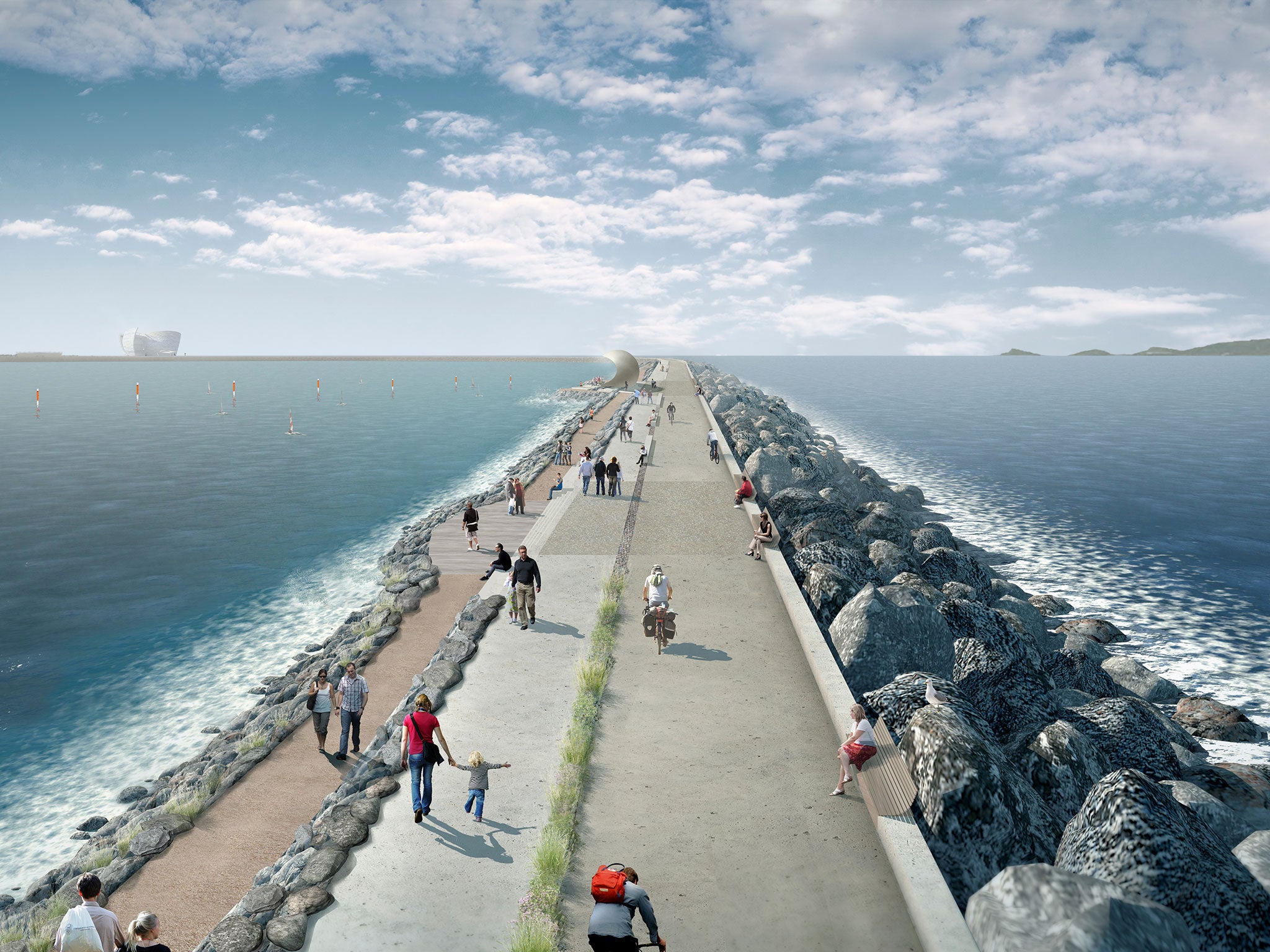Swansea's tidal lagoon project delayed amid concerns over costs

Your support helps us to tell the story
From reproductive rights to climate change to Big Tech, The Independent is on the ground when the story is developing. Whether it's investigating the financials of Elon Musk's pro-Trump PAC or producing our latest documentary, 'The A Word', which shines a light on the American women fighting for reproductive rights, we know how important it is to parse out the facts from the messaging.
At such a critical moment in US history, we need reporters on the ground. Your donation allows us to keep sending journalists to speak to both sides of the story.
The Independent is trusted by Americans across the entire political spectrum. And unlike many other quality news outlets, we choose not to lock Americans out of our reporting and analysis with paywalls. We believe quality journalism should be available to everyone, paid for by those who can afford it.
Your support makes all the difference.Government officials are reviewing whether the technology behind a proposed £1bn tidal lagoon in Swansea Bay, the first of its type in the world, could be as easily exported as its backers have claimed.
Executives at Gloucester-based Tidal Lagoon Power wanted construction to start in the spring after getting planning permission in June, but it has been delayed by 12 months. The postponement was partly blamed on negotiations with the Department for Energy & Climate Change (Decc) over the contract for difference (CfD), which is the subsidy the Government will pay for each unit of renewable energy produced by the lagoon.
At £168 per megawatt hour, the CfD is nearly double the payment that EDF is guaranteed for electricity it will produce at Hinkley Point C, the proposed new nuclear power station off the Somerset coast. But, if successful, the lagoon could be replicated in at least five other locations on the west coast, including Colwyn Bay and Cumbria, which, combined, would produce 8 per cent of the UK’s electricity. The lagoon would also help Britain to meet sustainable energy targets, and, potentially, develop a lucrative new export.
But sources have told The Independent that officials also want to verify that other countries would be as interested in adopting the sophisticated technology as Tidal Lagoon executives argue. Several countries are said to be interested in the technology, including Canada and France, and any orders would boost Britain’s attempts to be seen as a leader in green energy technology.
The lagoon would see the construction of a man-made breakwater that generates power from tidal movement. Hydro-turbines generate electricity when water flows through the blades.
It is understood that Decc is also concerned about the strength of the private investment case, given that the project’s price-tag is nearly double initial estimates.
Officials also want to check that it will produce the electricity its backers have claimed: 155,000 homes for 120 years.
An industry source said negotiations include “technical validation, cost verification, value for money case, supply chain potential, export potential, and associated benefits”.
Stephen Kinnock, the MP for Aberavon, said: “This is a new technology that has a huge amount of potential. But because it is new, by its very nature it’s not a bet you can make with 100 per cent certainty that the return on investment will be what it says in the business case.
“Given the jobs it creates and that it’s a green technology, in my view the balance of probabilities is that the project should go ahead. The prospect of this technology being exported has to be judged by instinct as much as hard-headed analysis, but from what I’ve heard other countries are interested.”
He added that the project’s costs will be helped by the collapse in steel prices that led to industry job losses across the country. Port Talbot Steelworks, owned by Tata, is near the proposed lagoon and would benefit from large orders if the project goes ahead, said Mr Kinnock.
A Decc spokesman said: “Negotiations about the Swansea Bay Tidal Lagoon Project are ongoing. We will carefully consider the project, its costs and potential benefits to see whether it is in the best interest of bill payers before any decision is made.”
A spokesman for Tidal Lagoon declined to comment.
Join our commenting forum
Join thought-provoking conversations, follow other Independent readers and see their replies
Comments